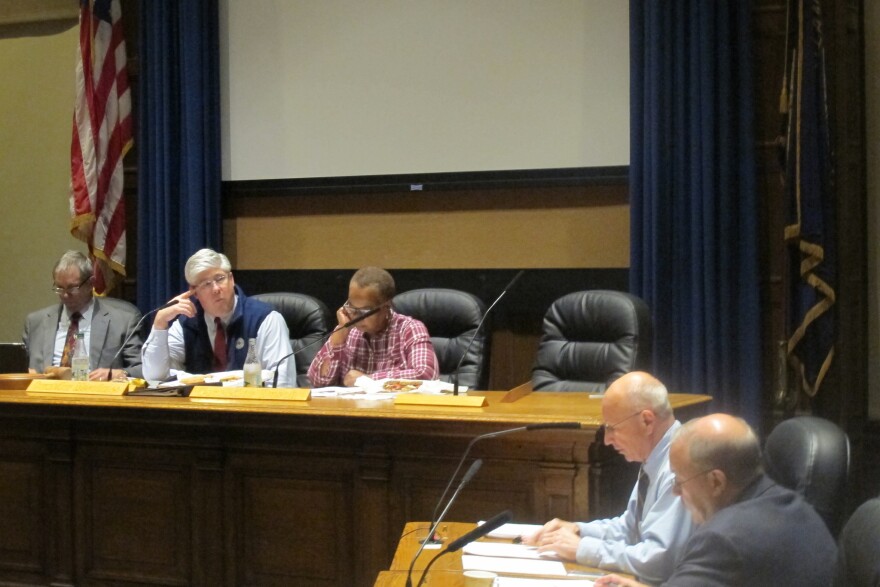PORTLAND, Maine - The city of Portland could become the first municipality in New England to set its own minimum wage - to more than $10 an hour over the next few years.
The current minimum wage in Portland, and across Maine, is $7.50 an hour. But the Portland City Council's Finance Committee is expected to vote early next year on a proposal that would increase it to $9.50 an hour, beginning next July.
It would increase again - to $10.10 an hour - in January 2016, and go up to $10.68 an hour the following year. Thereafter, the rate would increase annually, following the rate of inflation.
"Raising the minimum wage is, morally, the right thing to do," said Democratic state Sen. Justin Alfond, who was among those who spoke at a public hearing in Portland Thursday night. "If a person works 40 hours a week, they should earn enough money to pay their bills, provide for their families and stay in the city that they love."
According to the draft ordinance, fair market rent for a two-bedroom apartment in the Portland area is just over $1,000 a month. To afford that, advocates of the increase say a full-time worker would have to earn almost $20 an hour. Jeremiah Baker, who testified before the committee, said he earns more than the minimum wage, but still has trouble making ends meet.
"I am 17 years old and I have been providing for myself since I was 15 years old," Baker said. "I have been homeless for the past two years but I have been working hard to have a better life."
For some, the ordinance does not go far enough. Tom MacMillan is chair of the Portland Green Independent Committee, which is calling on the council to adopt a minimum wage of $15 an hour.
"What I support, and what the Green Party supports, is a universal, enforceable living wage," MacMillan said, "and what the mayor's proposed is a universal enforceable higher poverty wage."
MacMillan and others cited studies carried out in the handful of cities that have introduced their own minimum wage ordinance, suggesting that the economy has benefited and employers were not driven away. But several business owners said adopting the measure will drive up wages across the board,

"The money has to come from somewhere," said Curtis Picard, who heads the Retail Association of Maine. He says retailers do not have the option of jacking up prices to pay for higher wages. "Everybody with an iPhone or a tablet knows exactly what things cost anywhere on the net."
"It's a big increase," says Greg Dugal, executive director of the Maine Restaurant and Innkeepers Association. He estimates a typical small restaurant would incur an extra $30,000 to $40,000 in annual expenses if the ordinance is passed.
For others, he said the number could be substantially bigger. "Some hotels are in the six-figure range for increases, if you include employer taxes and everything," Dugal said.
Following the public hearing, members of the finance committee requested an economic impact study before deciding whether to recommend the ordinance to the full City Council.


